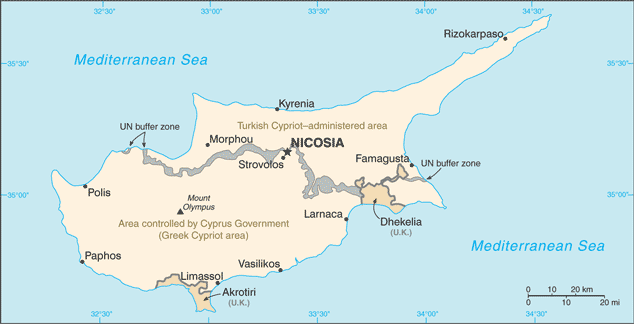Investing in Cyprus


The area of the Republic of Cyprus under government control has a market economy dominated by the service sector, which accounts for nearly four-fifths of GDP. Tourism, financial services, and real estate are the most important sectors. Erratic growth rates over the past decade reflect the economy's reliance on tourism, the profitability of which often fluctuates with political instability in the region and economic conditions in Western Europe. Nevertheless, the economy in the area under government control has grown at a rate well above the EU average since 2000. Cyprus joined the European Exchange Rate Mechanism (ERM2) in May 2005 and adopted the euro as its national currency on 1 January 2008. An aggressive austerity program in the preceding years, aimed at paving the way for the euro, helped turn a soaring fiscal deficit (6.3% in 2003) into a surplus of 1.2% in 2008, and reduced inflation to 4.7%. This prosperity came under pressure in 2009, as construction and tourism slowed in the face of reduced foreign demand triggered by the ongoing global financial crisis. Although Cyprus lagged behind its EU peers in showing signs of stress from the global crisis, the economy tipped into recession in 2009, contracting by 1.8%, and has been slow to bounce back since, posting an anemic growth rate of 0.6% in 2010. In addition, the budget deficit is on the rise and reached 5.7% of GDP in 2010, a violation of the EU's budget deficit criteria of no more than 3% of GDP. In response to the country's deteriorating finances, Nicosia is promising to implement measures to cut the cost of the state payroll, curb tax evasion, and revamp social benefits. However, it has been slow to act, lacking a consensus in parliament and among the social partners for its proposed measures.
Cyprus Stock Exchange - http://www.cse.com.cy/
Central Bank of Cyprus - http://www.centralbank.gov.cy/
Bank of Cyprus Group - http://www.bankofcyprus.com/
Learn more:
Back to Country Investing



